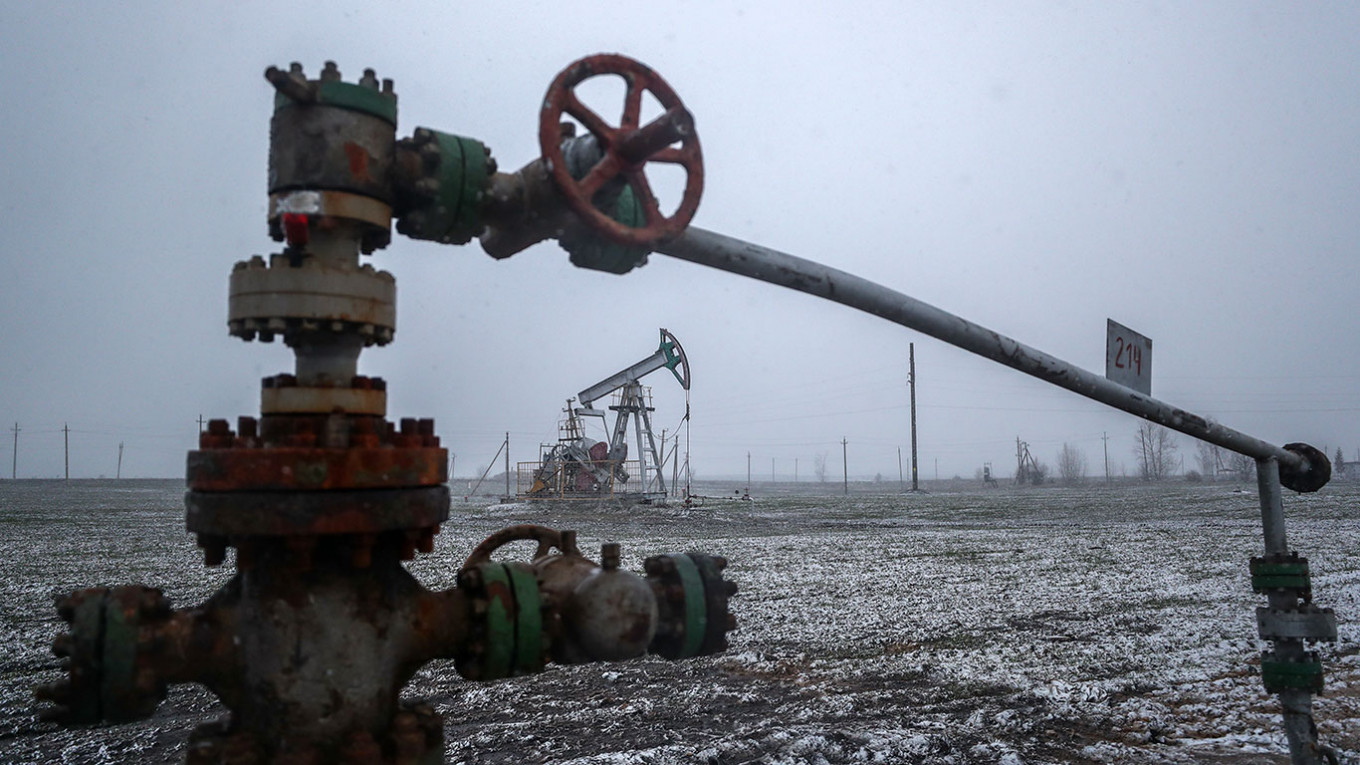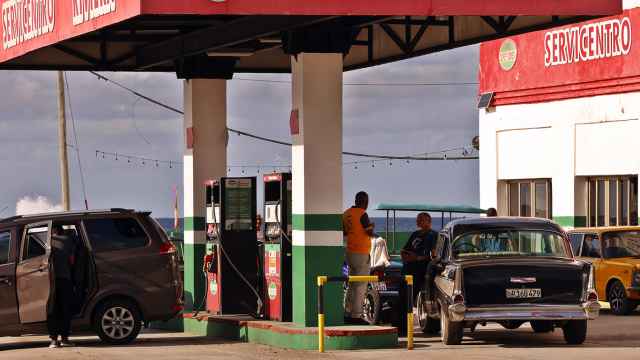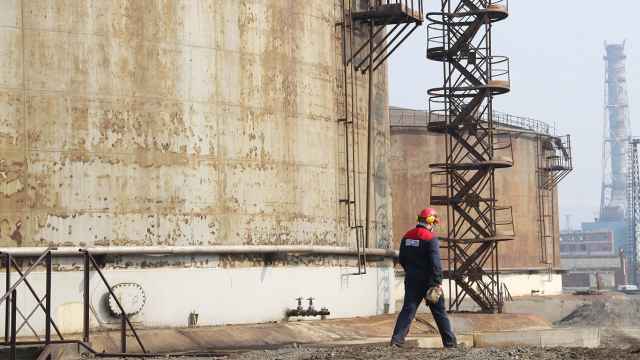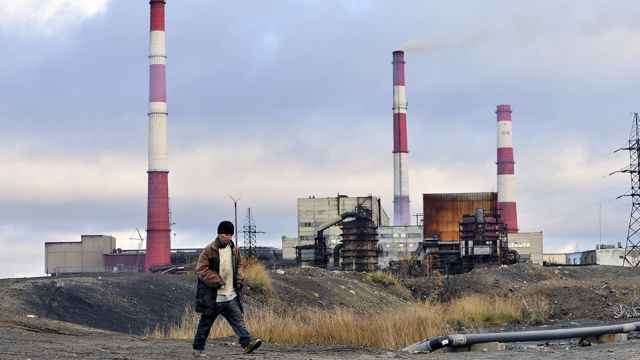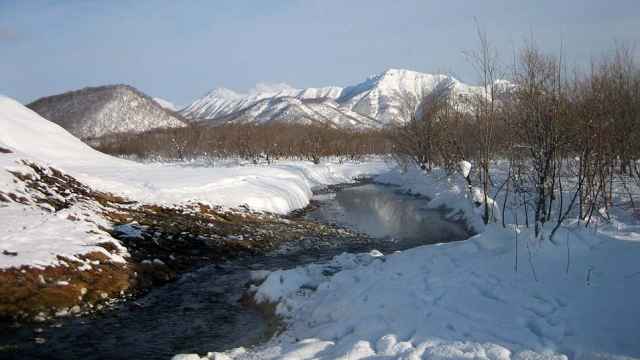Russia could be left with almost $2 trillion in worthless hydrocarbon assets if major economies hit their net zero targets over the coming decades, new research into the cost of the energy transition has found.
“The low-carbon transition could lead to a period of global financial and political instability due to the combination of deep structural change, widespread financial loss and reorganization in financial and market power worldwide,” a group of researchers from British universities said in a landmark paper, published Thursday in the journal Nature.
Their calculations show more than half of Russia’s estimated $3.9 trillion stock of fossil fuel assets — such as oil and gas rigs, pipelines, extraction facilities and other infrastructure to support the country’s vital energy sector — would become “stranded,” or effectively worth nothing, by 2036.
It is the latest stark warning of the potential cost of the global transition to cleaner sources of fuel for Russia. But despite the significant losses faced by the industry, Russia’s overall economy would only be 0.8% smaller as a result of the net zero transition than in a business-as-usual scenario, the researchers found.
The paper also said the Russian government could lose around 40% of its lucrative oil and gas revenues by 2030 — proceeds which have accounted for around 40% of the total national budget in recent years. That loss would be second in scope only to Canada. Employment could also drop by almost 4% by the end of the decade as demand for Russia’s hydrocarbons falls and the industry dwindles.
Globally, energy importers such as the EU, China, India, Japan, South Korea and Africa stand to be big winners, with their economies gaining by more than 10% in some cases. But energy heavyweights such as Russia, the U.S., Saudi Arabia, Norway and Canada would be left with a combined $11-14 trillion of worthless hydrocarbon infrastructure.
The paper also highlights the importance that the Organization of Petroleum Exporting Countries (OPEC), led by Saudi Arabia, will play in influencing which countries are hit hardest by the energy transition.
Since their production costs are typically cheaper than those in countries like Russia, which has a much harsher climate and trickier extraction processes, it would be in their interests to ramp up production, flood the market and squeeze out their competitors through lower prices, the authors argue.
“OPEC countries have a strong rational incentive, together or independently, to capture most future oil and gas demand by maintaining or increasing their production and thereby pricing out other participants from fossil fuel markets,” the paper states.
Under this scenario, OPEC would secure two-thirds of the global oil market, up from around 40% now.
Russia has a complex relationship with OPEC, energy analysts say, having cooperated with the bloc to stabilize prices in recent years, but also having triggered last year’s brief oil price war with Saudi Arabia at the start of the coronavirus pandemic.
However, if Russia and OPEC continue their policy of holding down production to keep prices high — a move which would benefit Russia with its higher extraction costs — the value of Russia’s stranded assets would be slightly lower at around $1.7 trillion, and its economy would expand by 0.4%.
Despite more major economies pledging to cut their use of fossil fuels, Russia is continuing to invest heavily in its hydrocarbon infrastructure — most notably through state-owned Rosneft’s vast “Vostok Oil” project, designed to exploit the country’s hardest-to-reach oil reserves in the Arctic. It is those kinds of assets, with their high extraction costs, that are likely to become stranded first as larger economies cut down their imports of oil and gas, said the researchers, led by the University of Exeter’s Jean-Francois Mercure.
President Vladimir Putin has committed to make Russia a net zero economy by 2060. The country is currently the world’s fourth-largest emitter of greenhouse gases. Critics and environmental activists say the country is not moving fast enough to help stem the effects of climate change.
A Message from The Moscow Times:
Dear readers,
We are facing unprecedented challenges. Russia's Prosecutor General's Office has designated The Moscow Times as an "undesirable" organization, criminalizing our work and putting our staff at risk of prosecution. This follows our earlier unjust labeling as a "foreign agent."
These actions are direct attempts to silence independent journalism in Russia. The authorities claim our work "discredits the decisions of the Russian leadership." We see things differently: we strive to provide accurate, unbiased reporting on Russia.
We, the journalists of The Moscow Times, refuse to be silenced. But to continue our work, we need your help.
Your support, no matter how small, makes a world of difference. If you can, please support us monthly starting from just $2. It's quick to set up, and every contribution makes a significant impact.
By supporting The Moscow Times, you're defending open, independent journalism in the face of repression. Thank you for standing with us.
Remind me later.



